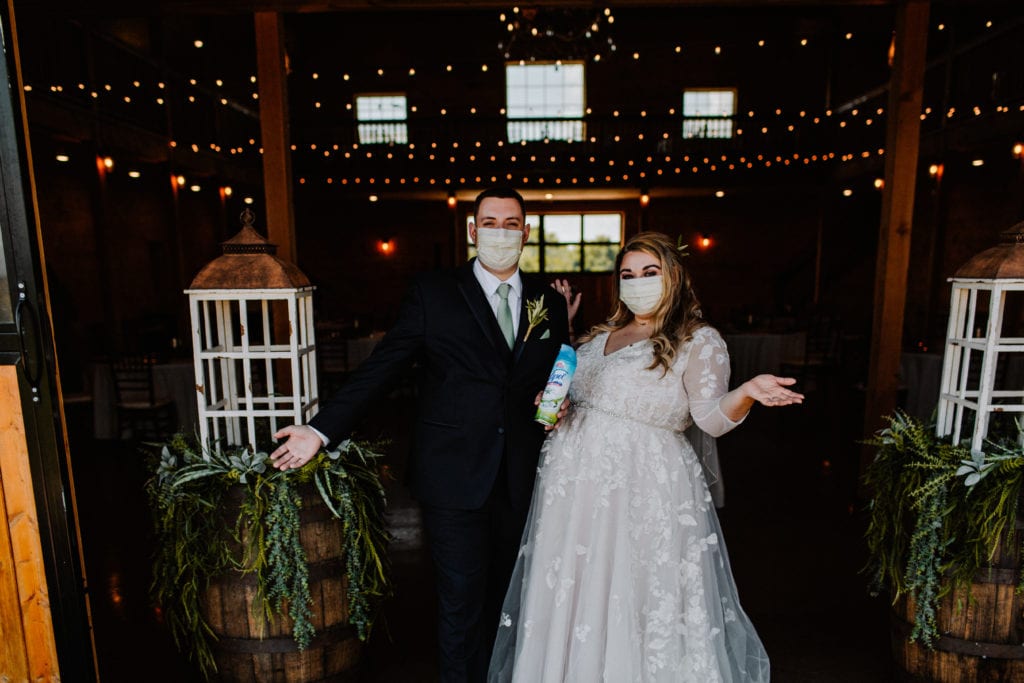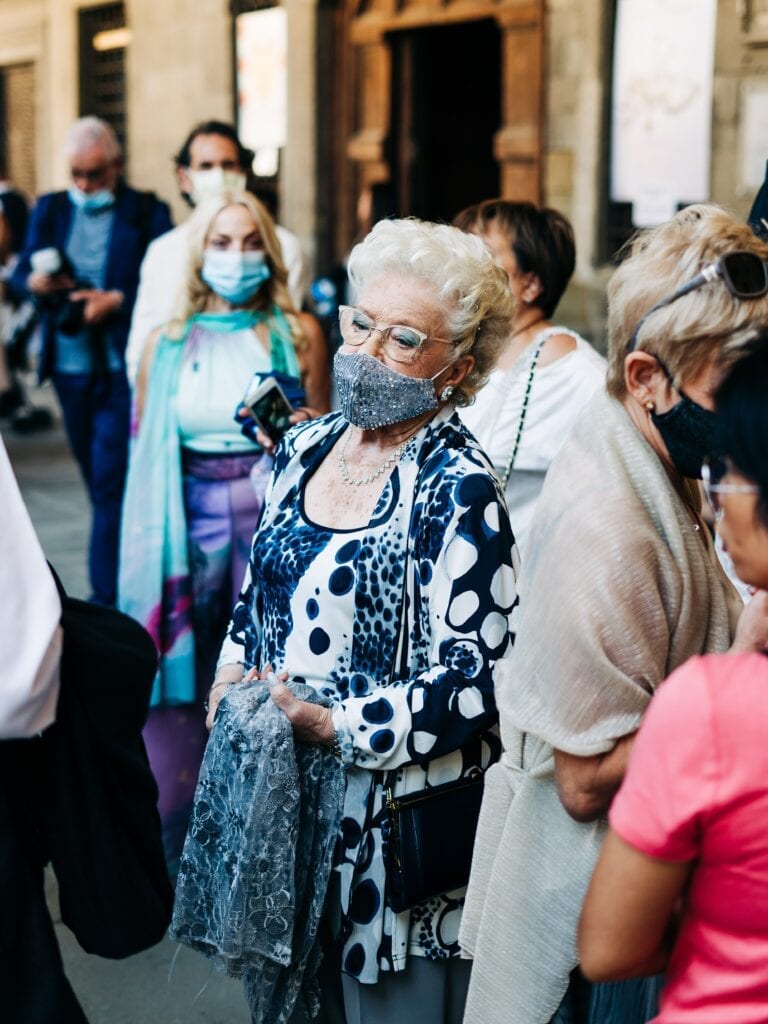
The arrival of 2021 has brought much optimism across myriad walks of life due to the development of the Covid-19 vaccine —just the idea of grabbing a drink or going to the gym sans mask is downright thrilling. For many, the vaccine’s mere existence has created a sense that things are going to be okay, something we haven’t felt in nearly a year (I think it’s also called hope?).
We all know that 2020 was essentially one long wedding season rife with rescheduling and cancellations and hoops to jump through for couples, vendors, family members, and friends. After all was said and done, many weddings were downsized with social distancing and mask measures in place. Or, couples simply eloped. Now, however, couples are grappling with a new decision: whether they will require their guests to be vaccinated in order to attend their wedding.
This, of course, creates many layers of debate. First is considering the fact that some guests simply aren’t choosing to get vaccinated. Given the high degree of effectiveness in mask-wearing for preventing the spread of Covid-19, are they still allowed to attend if they wear a mask and keep their distance?
For some couples, the answer is a hard no. One bride recently told the New York Times that she and her partner will “kindly request” that their guests all get vaccinated. She has asthma, her grandfather has Type 2 diabetes, and her father-in-law had a triple bypass and liver transplant, making them all high-risk.

In situations such as this—where guests are required to get vaccinated— some basic logistics need to be in place. First, guests need to live in a place where they qualify for the vaccine in time for it to create immunity prior to the wedding date, which can take one to two weeks after the second dose.
The second dose is given up to a month after the first one, meaning guests need to start the vaccination process roughly a month-and-a-half before the wedding date. This can be difficult to plan for in states where the rollout has been bumpy and hard to predict. Some members of the general public won’t receive the vaccination until May at the earliest, right when wedding season hits its stride.
For perspective, in my city, there’s a waitlist of 30,000 individuals for the vaccine, many of whom fall in the last category to receive it—the general public. This week, our mayor announced that the city will only receive 2,000 vaccinations per week (of the first dose) for the month of February. This is not a promising pace if it holds for the long run.
If, for instance, it takes until May for many of the members of the general public to receive the first dose—which is how things are looking— these individuals theoretically shouldn’t plan on attending any weddings that require vaccinations until mid-June—at the earliest. Add to this the fact that children under 16 aren’t eligible to receive the vaccine, and you’ve entered the decision-making Olympics.
However, on the bright side, most doctors agree that vaccination shouldn’t be a requirement for weddings, simply because they still don’t know to what extent the vaccine prevents infection from Covid-19. What they do know is that our current measures of mask-wearing and social distancing are effective, and should remain the norm for weddings until experts better understand the long-term effects of the vaccine. Most also agree that weddings should remain small.
It’s clear that for many, the Covid-19 vaccine has created a new set of logistical decisions worth considering early on in the planning, or replanning, process. If you’re requiring that your guests get vaccinated, make things a little easier for them and think about adding a calendar to your save-the-dates showing when they should receive their first dose. But be prepared to accept that—due to logistics beyond your control—some guests might not be able to attend at all.




